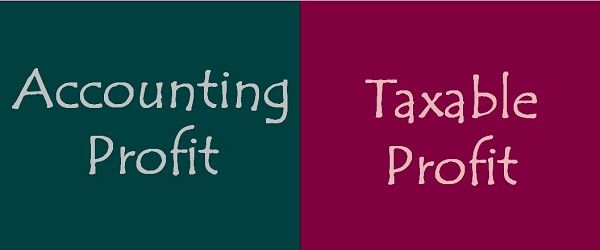 The meaning of profit is different to different persons, i.e. businessmen, accountant, workers, tax collectors, economist etc. For an accountant, profit means the excess of revenues over expenses, which is known as Accounting profit. At the time of computing accounting profit, only explicit costs, i.e. book costs are considered.
The meaning of profit is different to different persons, i.e. businessmen, accountant, workers, tax collectors, economist etc. For an accountant, profit means the excess of revenues over expenses, which is known as Accounting profit. At the time of computing accounting profit, only explicit costs, i.e. book costs are considered.
The concept of accounting profit differs from taxable profit, in the sense that the latter is the amount which is taxable as per the provisions of the income tax act. It is calculated by taking into account accounting profit and then adding the non-allowable expenses less allowable expenses and the incomes credited in Profit and Loss account.
Take a read of this article excerpt that will provide you a thorough understanding on the difference between accounting profit and taxable profit.
Content: Accounting Profit Vs Taxable Profit
Comparison Chart
| Basis for Comparison | Accounting Profit | Taxable Profit |
|---|---|---|
| Meaning | The term accounting profit refers the company's income obtained after reducing total expenses from total revenues. | The term taxable profit refers to the profit of the business which is taxable as per income tax rules. |
| Basis | Accounting Standard | Income Tax Act 1961 |
| Year | Financial Year | Income of Previous Year is Taxable in Assessment Year. |
| Objective | To know the profitability and performance of the entity. To know the taxability of the entity. | To know the taxability of the entity. |
| Audit | Financial Audit | Tax Audit |
Definition of Accounting Profit
Accounting Profit is the result of operating and non-operating activities of the company. It is the actual financial gain obtained after reducing total expenses from total revenue of the business. It reflects the company’s profitability and performance in the future. It also determines that how accurately the resources of the entity are allocated.
For knowing the company’s liquidity and solvency, accounting profit is very helpful to the users of the financial statement.
The financial year starts from 1st day of April and ends on the 31st day of March.
Definition of Taxable Profit
The amount of profit which is taxable as per the Income Tax Act, 1961 under the head Profit and Gains from Business or Profession, is known as taxable profit. It is derived by taking accounting profit as a base. Every year the return is furnished to the income tax department for the previous year in the assessment year. On the basis of this return the taxable profit and the tax thereof is calculated which is to be paid by the company. In this profit, disallowed expenses are added back.
For Example – If the Assessment Year is 2015-2016, then the Previous Year will be 2014-2015.
Key Differences Between Accounting Profit and Taxable Profit
The difference between accounting profit and taxable profit can be drawn clearly on the following grounds:
- The financial profit of the business is known as accounting profit while the profit which is taxable is known as taxable profit.
- The return is furnished to the relevant department in case of taxable profit while accounting profit is publicly at the end of the financial year.
- Financial Audit is conducted for recognizing correct accounting profit. On the other hand, Tax Audit is carried out for recognizing the actual taxable profit.
- Accounting profit is used for the purpose of knowing company’s profitability in the specified period while the Taxable profit is used for the purpose of identifying the tax payable by the company.
- Accounting Profit is for a particular financial year while Taxable Profit is for the previous year assessed in the assessment year.
Conclusion
There are many points which differentiate the two entities which are discussed here in detail. In simple words, both of them are correct in their place. Accounting Profit is calculated as per the accounting principles and assumptions while the taxable profit is calculated as per the prescribed tax rules of every country. Both the profits are calculated for a specific period. Many times accounting profits is greater than the taxable profit.






Ronald komar says
The club I belong to is a Not For Profit organization. Dues alone cannot pay for all the maintenance and capital expense that are necessary to keep the club running. No one is paid at the Club and we depend on volunteers to get things done. Recently we were told that we had some valuable sand and gravel on the property and we are considering selling it. Would we then be taxed on that income, as of now we are not taxed? We only pay property tax to the local government. Thank you